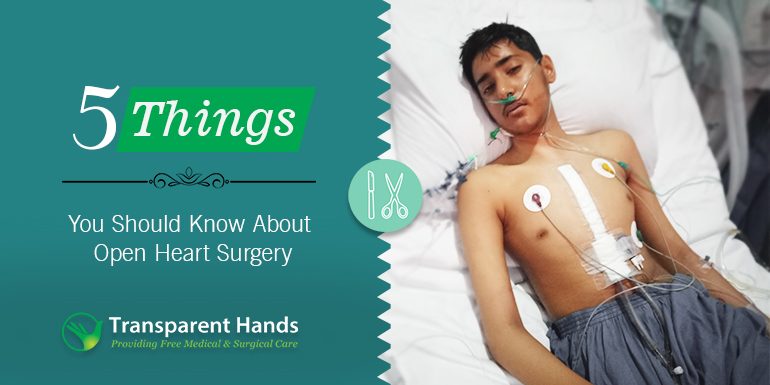5 Things You Should Know About Open Heart Surgery

Open heart surgeries are performed to operate on the heart to treat problems with the valves, arteries supplying the heart, and often problems associated with Aneurysms in the main vessel leaving the heart. Though it is an intensive surgery, mortality rates are quite low so patients need not worry or become scared about the procedures. 5 Things You Should Know About Open Heart Surgery.
Usually, the sense of fear comes from uncertainty. Once we are absolutely informed about the things going to happen to us, the sense of anxiety and nervousness disappears from our mind.
To eliminate fear or nervousness the patient can definitely try to stay mentally prepared, simply by accessing the essential facts related to open heart surgery.
Here are five things you should know about open heart surgery:
1. Most Frequently Performed Surgery:
The Coronary Artery Bypass Graft (CABG) is the most commonly performed open heart surgery. Usually, surgeons opt out for a CABG, to open the blocked arteries in the heart.
CABG surgery is a proven way to ease severe pain in the chest. It also reduces the painful sensation in the shoulders, arms and neck, all caused by the inadequate blood supply to the heart.
2. The Procedure of Surgery:
The surgeon will make a 2 to 5 inches long incision in the breastbone, in order to separate the muscles to get access inside the patient’s heart.
During the bypass procedure, the patient will be hooked up to a heart-lung machine. This machine performs an important task. It will continue to push blood through the body, as long as the doctor performs surgery and the heart is stopped from beating.
In the next step, the surgeon will close the breastbone with special sternal wires, and sew the incision with special internal or external stitches. The surgeon will give electrical shocks to restart the heart, and make it beat normally so that it can start doing its casual job.
As soon as the heart resumes its function the heart-lung bypass machine will be removed.
3. What to Expect after Surgery:
After heart patients wake up from surgery, they discover themselves attached to several tubes including one down the throat. Other tubes may include pacing wires, a chest tube to drain fluid, and a temporary pacemaker.
4. Recovery Period:
The patients usually spend their first night in the ICU. Normally patients have to stay there for one or two days after the surgery. Once they get stable they will be moved to a general cabin. In usual situations, patients are discharged from the hospital, within three to eight days of the surgery.
If everything goes right it will take 6 to 8 weeks to recover from the surgery. However, the patient needs to keep in touch with the doctor ,so that he can counsel you on diet and exercise. To accelerate the recovery process the patient may enroll in a cardiac rehab program.
5. Experiencing Depression:
According to a report presented by WebMD, about 20% of CABG patients go through extreme depression after the surgery. Patients usually feel low, frustrated and often cry. The presence of depression can increase the risk of death in patients by 17%.
If you’re recovering from heart surgery, feelings of sadness or a depressed mood are very for normal in the first few weeks.
Depression can reduce your overall healing process. If you detect any symptoms of depression you must discuss the issue with your healthcare provider because early detection can alleviate the trouble at an early stage.
If depression gets severe it can be accompanied by other symptoms. The patient may withdraw himself from regular activities; he may not respond or communicate with the family and friends. It may also lead to increased negative thoughts and tearfulness.










Leave a Reply